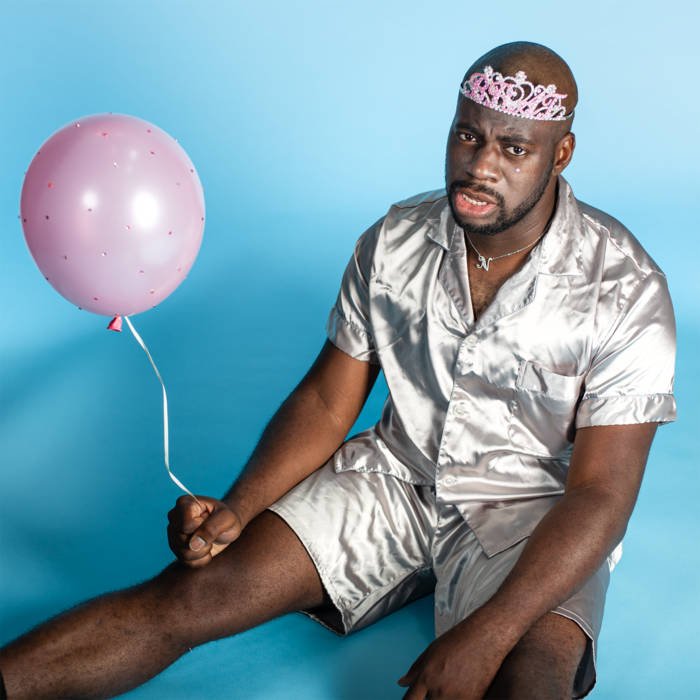NNAMDÏ - BRAT
Written by Chi Chi Thalken on April 3, 2020Nnamdi Ogbonnaya has been a staple in the Chicago music scene for years as a part of different punk and post-rock groups like Nervous Passengers and Monobody, playing different instruments in each group. People really started to learn his name back in 2017, though, when he dropped a completely unique and entertaining solo album in DROOL. After touring exhaustively in support of the album, he’s dropped his last name and is just performing as NNAMDÏ as he ups the stakes for his next solo album, BRAT.
Much of what you loved about DROOL is present on BRAT – the wild energy, the musicianship, the short attention span that meant that the music always felt like it could go off in another direction at any second, and the hidden lyrical depth just below this sporadic musical surface. Where Ogbonnaya really outdoes himself on BRAT is that while this anything goes approach is still there, what you won’t realize until after you listen to it all the way through is that he’s learned to further hone his skills as a songwriter. He has figured out how to go through and corral himself in such a way that while you get the excitement of jumping from drill to punk to jazz to post-rock in just a few short steps, you also get an album that has been carefully composed to build from the first second you press play all the way until the album finishes twelve tracks later. Over the course of the album, Ogbonnaya is rapping and singing about everything from mental health to religion to race relations in his city to his personal relationships with friends and family. As he’s doing all of this, Ogbonnaya is dealing with the heavy subject matter by cutting the tension with a sarcastic and absurd sense of humor, one with a penchant for pop culture references. Nowhere is this easier to see than on the opening track, “Flowers for My Demons,” which starts with the lines, “Pick my naps in public, I’m a happy tree/ I’m a Ross painted pretty bitch, Shout out Lil B,” before making your way to a chorus in which he sings in falsetto, “I need you need something new.” This line is echoed later in the album, as Nnamdi plays with pitch shifting his voice on the trap/R&B-track “Wasted,” which makes it feel like that refrain is representing a voice in the back of Ogbonnaya’s head. And while Nnamdi’s sense of humor is appreciated to cut the tension, he knows when it’s time to get serious and deliver a straight message, such as on “It’s OK,” in which he repeats the mantra, “There’s no need to pretend, you’re OK if you’re not,” against a soundscape that feels like Brian Wilson and Dntel collaborated on a song. All of this leads to the culmination of the album on the final track, “Salut,” which feels like a church sermon that TV on the Radio wrote, as Nnamdi tries to find peace within the teachings he grew up with as the son of a minister.
There are interesting singles on BRAT that can be enjoyed in the company of good friends, and you might be even moved to dance to them. The first time you listen to BRAT, though, and maybe the second and third time as well, you should hole yourself up in your bedroom or otherwise cozy spot, put some headphones on, and really allow yourself to soak in this musical journey that Nnamdi has so carefully constructed for all of us. It’s wildly inventive as he defies all genre classification and just throws all of the different musical ideas into the pool, but it’s also incredibly thoughtful in the way everything unfolds and speaks alongside these important personal issues. BRAT is a moving and heartfelt piece of art that has few peers. NNAMDÏ has elevated the game with this one.
| Title: | NNAMDÏ - BRAT |
|---|---|
| Label: | Sooper Records |
| Year: | 2020 |
| Rating: | 9/10 |

